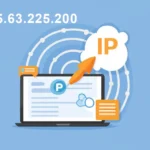Technology skills are no longer optional — they are essential across all sectors, from marketing and logistics to education and finance. As digital transformation accelerates, everyone from students to entrepreneurs must master core tech competencies to stay competitive.
This guide breaks down exactly what technology competencias son, why they matter, which ones dominate in 2025, and how to acquire them efficiently.
Índice
1. What Are Technology Skills?
Technology skills refer to the knowledge and ability to use, manage, create, or secure digital tools and systems. They include both:
- Hard skills (technical): Coding, database management, Excel mastery
- Digital soft skills: Computational pensando, adaptability to digital tools
Common Examples:
- Utilizando ERP or CRM platforms
- Designing a mobile app
- Running data analysis in Python
- Configuring secure network environments
2. Why Technology Skills Are Crucial in 2025
According to the World Economic Forum, over 85 million jobs will be redefined by technology by 2025. Digital fluency is now as valuable as traditional experience.
Key drivers:
- Digitization of public and private services
- Rise of automation and artificial intelligence
- Shift to remote/hybrid work models
- Big data explosion
- Growing focus on cybersecurity and data privacy
Failing to build tech skills now means losing access to career opportunities, advancement, and global mobility.
3. Top 10 In-Demand Technology Skills in 2025
a. Programming (Coding)
Python, JavaScript, Java, and SQL are essential across software development, data science, and cybersecurity.
b. Cloud Computing
AWS, Microsoft Azure, and Google Cloud are mandatory knowledge for cloud architects, backend devs, and DevOps engineers.
c. Data Analytics & Data Science
Skills in data storytelling, dashboards (Power BI, Tableau), and predictive modeling (Python, R) are among the highest-paid.
d. Cybersecurity
Firewalls, vulnerability assessment, pentesting, ISO 27001, and GDPR compliance are core to all tech careers.
e. Artificial Intelligence
AI model development, evaluation, and deployment via TensorFlow, PyTorch, and Hugging Face.
f. Networking Fundamentals
Understanding TCP/IP, VPNs, DNS, routers, and server configurations is critical for IT support and systems engineers.
g. Web Development
HTML, CSS, JavaScript, and frameworks like React, Angular, and Vue.js power most digital interfaces.
h. UX/UI Design
Tools like Figma and Adobe XD are essential to design intuitive, accessible, and engaging interfaces.
i. Tech Project Management
Mastering Agile, Scrum, and tools like Jira, Asana, and Trello makes collaboration seamless.
j. No-Code/Low-Code Automation
Platforms like Zapier, Airtable, Make, and Power Automate let teams build digital workflows with minimal coding.
4. How to Build Technology Skills
a. Online Learning Platforms
- Coursera, Udemy, edX, OpenClassrooms (certified courses)
- FreeCodeCamp, Codecademy (interactive coding practice)
b. Tech Bootcamps
Intensive programs (3–6 months) focused on job-ready training: Le Wagon, IronHack, Wild Code School
c. Certifications
- Technical: AWS, Cisco, Google Cloud, CompTIA, Microsoft
- Managerial: PMP, ITIL, ISO/IEC 27001
d. Project-Based Learning
Build a website, app, dashboard, or automation tool. Real projects accelerate mastery.
5. Digital Soft Skills That Matter
Employers value tech-savvy mindsets as much as hard skills. Key soft skills include:
- Problem-solving with digital solutions
- Adaptability to new platforms and updates
- Remote collaboration using Slack, Zoom, Asana
- Curiosity and lifelong learning
- Analytical thinking for data-driven decision-making
6. Tech Skills by Role
| Role | Relevant Technology Skills |
|---|---|
| Web Developer | HTML, CSS, JS, Git, React |
| Analista de datos | Python, SQL, Power BI, Excel |
| Community Manager | SEO, Google Analytics, Canva |
| IT Manager | Cloud, security, network administration |
| Digital Project Lead | Agile, Trello, Jira, collaborative tools |
| UX Designer | Figma, Adobe XD, UX research techniques |
7. Future Tech Skills to Watch by 2030
Stay ahead of the curve by developing:
- Generative AI (prompt engineering, LLMs)
- Blockchain and smart contracts
- Augmented/Virtual Reality (AR/VR)
- Edge computing
- Data ethics and privacy compliance
Professionals who prepare now for these areas will lead the next digital wave.
FAQ – What Are Technology Skills?
What are technology skills?
They are digital and técnico competencies needed to use or build tecnología and software tools.
How can I learn technology skills quickly?
Via online courses, bootcamps, and project-based learning.
What are the most in-demand tech skills?
Data analytics, cybersecurity, cloud computing, AI, and web development.
Do I need to know coding to have tech skills?
Not always. Tools like no-code plataformas or data visualization software also count.
Is a degree required to prove my skills?
No. Certifications and a strong portfolio can be just as powerful for recruiters.





